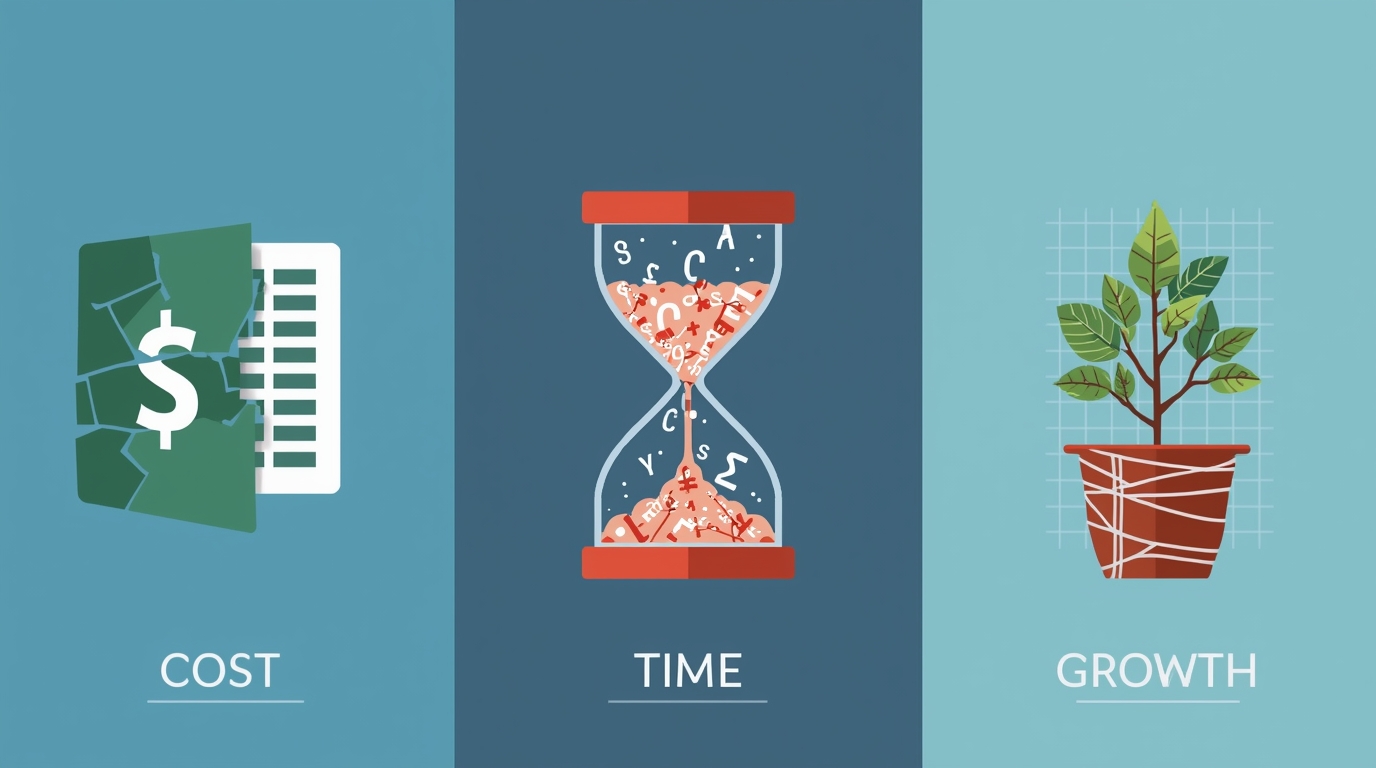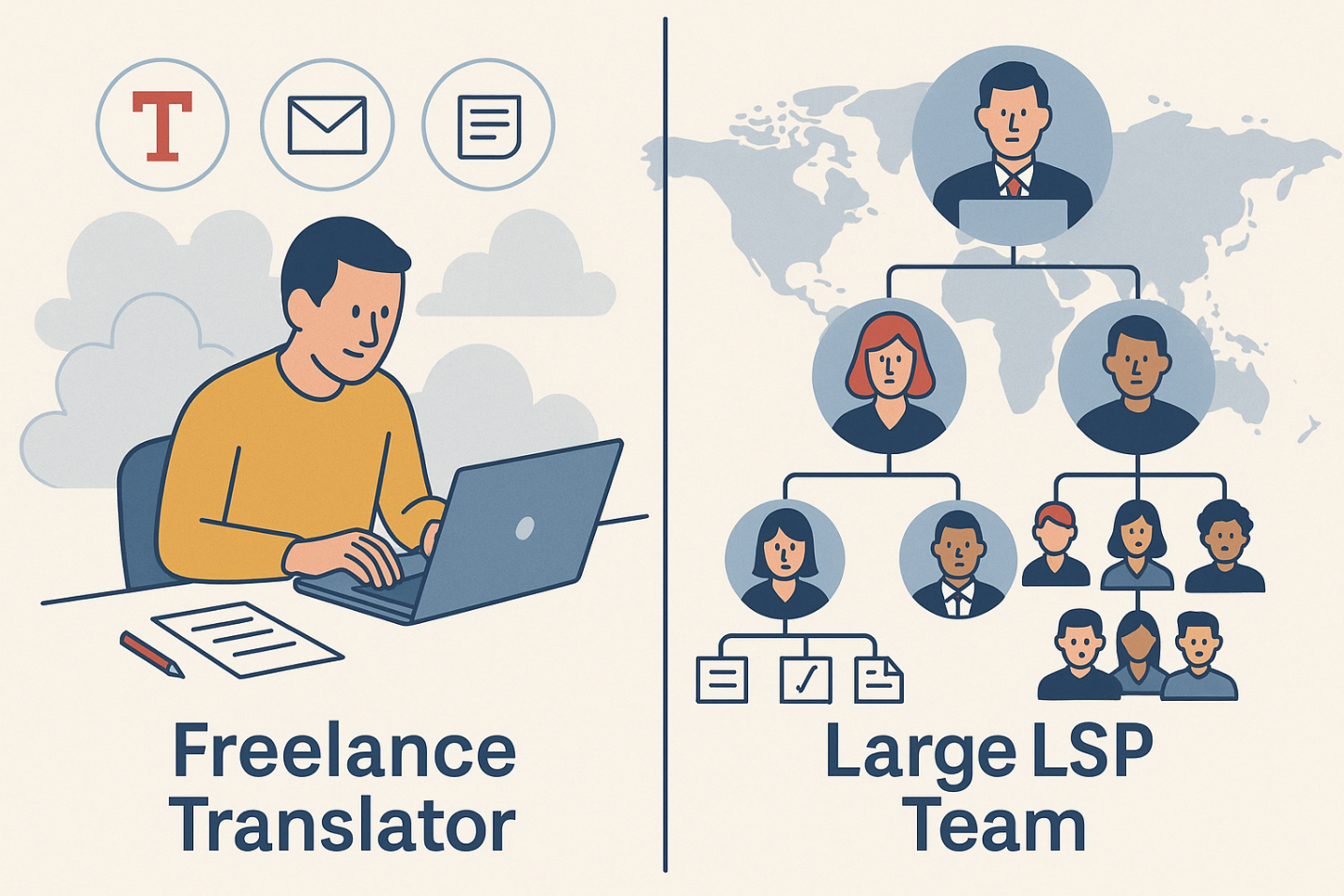Why Excel is still killing translation businesses in 2025
In 2025, many translation agencies are still running their businesses with the same tool they started with years ago: Excel (or Google Spreadsheets). It feels simple. It feels free. It feels familiar. But behind that sense of control, Excel quietly kills growth, efficiency, and even profits.
Let’s be honest: Excel was never designed to manage a translation business. It can handle a client list or a budget table, but when you try to build your company on spreadsheets, you are asking for trouble.
1. Spreadsheets don’t scale — businesses do
A one-person agency can survive with Excel. A five-person agency will already feel the pain. Once you reach ten or twenty people, it becomes chaos.Why? Because spreadsheets don’t grow with you.
Every new client, project, or vendor creates another row, another tab, another file. Copy-paste, email chains, missing versions — that’s not a system. That’s firefighting. A translation business, by definition, is built to scale. If your tool cannot follow, it becomes a bottleneck.
2. Excel hides mistakes — until it’s too late
Excel has no warnings, no built-in controls, no workflow logic.
One wrong formula, one misplaced decimal point, one accidental overwrite — and suddenly your vendor didn’t get paid, your invoice went to the wrong client, or your project margin is gone.
Most LSP owners I talk to have at least one story of “Excel disaster”. And every disaster costs money, trust, and nerves.
3. Lost time is lost business
Think of all the hours spent:
- Searching through files.
- Updating multiple sheets for the same project.
- Manually preparing reports.
- Fixing version conflicts.
Multiply those hours by your PM’s salary. Then multiply again by 12 months. Suddenly, Excel is the most expensive “free tool” in your company.
4. Clients don’t wait for spreadsheets
Clients expect speed, transparency, and professionalism.When you send a late update because you were “checking the spreadsheet”, it doesn’t sound professional.
When you can’t instantly show project status or financial reports, clients wonder: are these people serious.
In 2025, competition is not only about quality. It’s about speed and trust. Excel gives you neither.
5. The hidden cost of “free”
Yes, Excel doesn’t charge a license fee. But it charges something more valuable: opportunity. Every hour spent fixing a spreadsheet is an hour not spent finding clients. Every mistake costs you more than any subscription fee. Every missed opportunity to automate keeps you behind competitors. “Free” Excel is often the most expensive choice.
6. The industry has moved on
The translation industry has changed dramatically in the past decade. We’ve seen:
- AI-powered tools.
- Integrated workflows.
- Real-time vendor and client portals.
- Automated finance and reporting.
Meanwhile, Excel hasn’t changed at all. If your tools don’t reflect the reality of 2025, your business risks becoming a relic of 2010.
Final thought
No one denies Excel is useful. It’s great for quick calculations, small reports, or data snapshots. But as the backbone of a translation business? It’s a liability. In 2025, translation agencies that still rely on spreadsheets are not saving money. They are losing growth, losing time, and slowly — losing the market.
So the real question is not “Why switch from Excel?”
The real question is: “How much longer can you afford not to?”
If you recognize yourself in this story, maybe it’s time to look beyond spreadsheets. Modern TBMS solutions (like Protemos) are built to give you control, speed, and confidence — without Excel nightmares.



.png)


